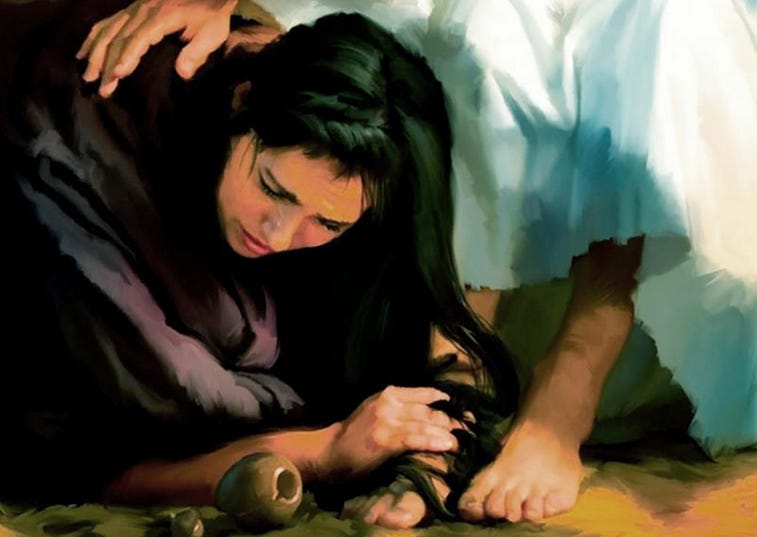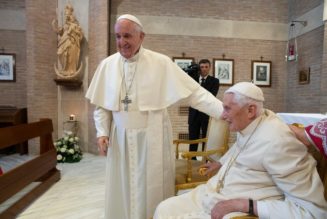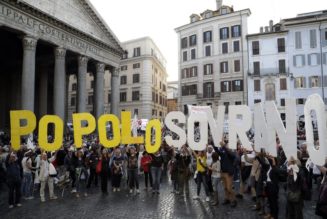Recently, I heard an argument that there is no such thing as a truly selfless gift. That is, a gift with no strings attached. The reason being, the argument goes, the giver always expects something in return from the receiver. The “something” in question need not be money, or favors; it may simply be the expectation of a “thank you for the gift.” Nevertheless, something is always expected. There is no free lunch as the saying goes.
I’m not entirely sure how prevalent this viewpoint is, but I fear it may be fairly common. My hope is that this current reflection may disabuse those who hold this view of the world. After all, the giving of gifts is very much an essential way that love is shown to others. So, if we have a fundamental misunderstanding about the nature of acts of love, we are likely to needlessly suffer in our relationships with those we love, and those who love us. Indeed, we may judge them harshly in the very act by which they ought to have been judged most favorably.
The Giver-Receiver
There is an important, and perhaps subtle distinction that those who hold this view may be failing to make. Namely, it is undeniably true that the giver does receive something in return each time they give a gift. This is because as creatures, we are not pure act—we have the potential to be better. And so, when we perform a good deed, it will increase our charity (caritas), our empathy to others, and of course, our own joy and happiness.
However, it should be noted that just because we experience joy when we give gifts to others, this does not therefore mean that this is the end of the act itself. When we desire the good of another, what we primarily intend is precisely that: their good. The joy that we receive by rejoicing in their good is therefore not an end per se, but rather a concomitant effect.
Critically, it must be observed that the joy we receive, and the virtue that is increased in us is not an expectation placed on the receiver of the gift. Indeed, as explained above, it is a concomitant effect of the very act of giving.
The alternative
Now, we ought not to be overly pollyannaish. Most of us have probably received a gift that we felt did have strings attached. A gift where the giver really did make demands on us. Indeed, many of us have probably given gifts expecting something in return. If and when this is our attitude, the correct response is not to believe, “Well, this is simply the nature of gifts. I want something in return.” On the contrary, we must return to the true meaning of “gift” and simply rejoice in the good of the other.
If we find this kind of giving and receiving difficult to believe and practice, I would offer two points for your consideration.
The first is that the alternative viewpoint of “gift” is really better thought of as an exchange of goods. At the point where you are demanding one good for another, you have ceased to become a gift-giver and have instead become something else—a salesman. Gift giving will have been replaced with bartering.
The second point is to contemplate the Person whose name is Gift. In a profoundly beautiful article in the Summa Theologiae, St. Thomas tells us that “Gift” is the proper name of the Holy Spirit.
In proof of this we must know that a gift is properly an unreturnable giving…—i.e. a thing which is not given with the intention of a return—and it thus contains the idea of a gratuitous donation. Now, the reason of donation being gratuitous is love; since therefore do we give something to anyone gratuitously forasmuch as we wish him well. So what we first give him is the love whereby we wish him well. Hence it is manifest that love has the nature of a first gift, through which all free gifts are given. So since the Holy Ghost proceeds as love, as stated above, He proceeds as the first gift.
“So what we first give him is the love whereby we wish him well.”
Any true gift then is always two gifts—the first always being the love of the gift-giver. If we fail to recognize this in the true gifts given to us, then we have failed to recognize half of the gifts given to us in life, and the most important ones at that.
To see only one gift, the final gift, without seeing the first gift, the love with which it is given, is to make the same mistake as Judas. “Why was this oil not sold for three hundred days’ wages and given to the poor?” Why? Because Mary gave of herself completely selflessly. This was no transaction. No barter. As Fulton Sheen noted, Judas knew “the price of everything and the value of nothing.” Our Lord replies to Judas “Amen, I say to you, wherever this gospel is proclaimed in the whole world, what she has done will be spoken of, in memory of her.” Though the entire bottle of oil was poured forth as a gift, it was first preceded by her pouring every drop of her love for Our Lord.
In this world, there are far too many Judases, and far too few Magdalenes. Let’s be Magdalenes: receive the gift of the other with joy and thanksgiving, and break open the bottle when we give to others, so they can see not one drop was held back from them.
Join Our Telegram Group : Salvation & Prosperity










